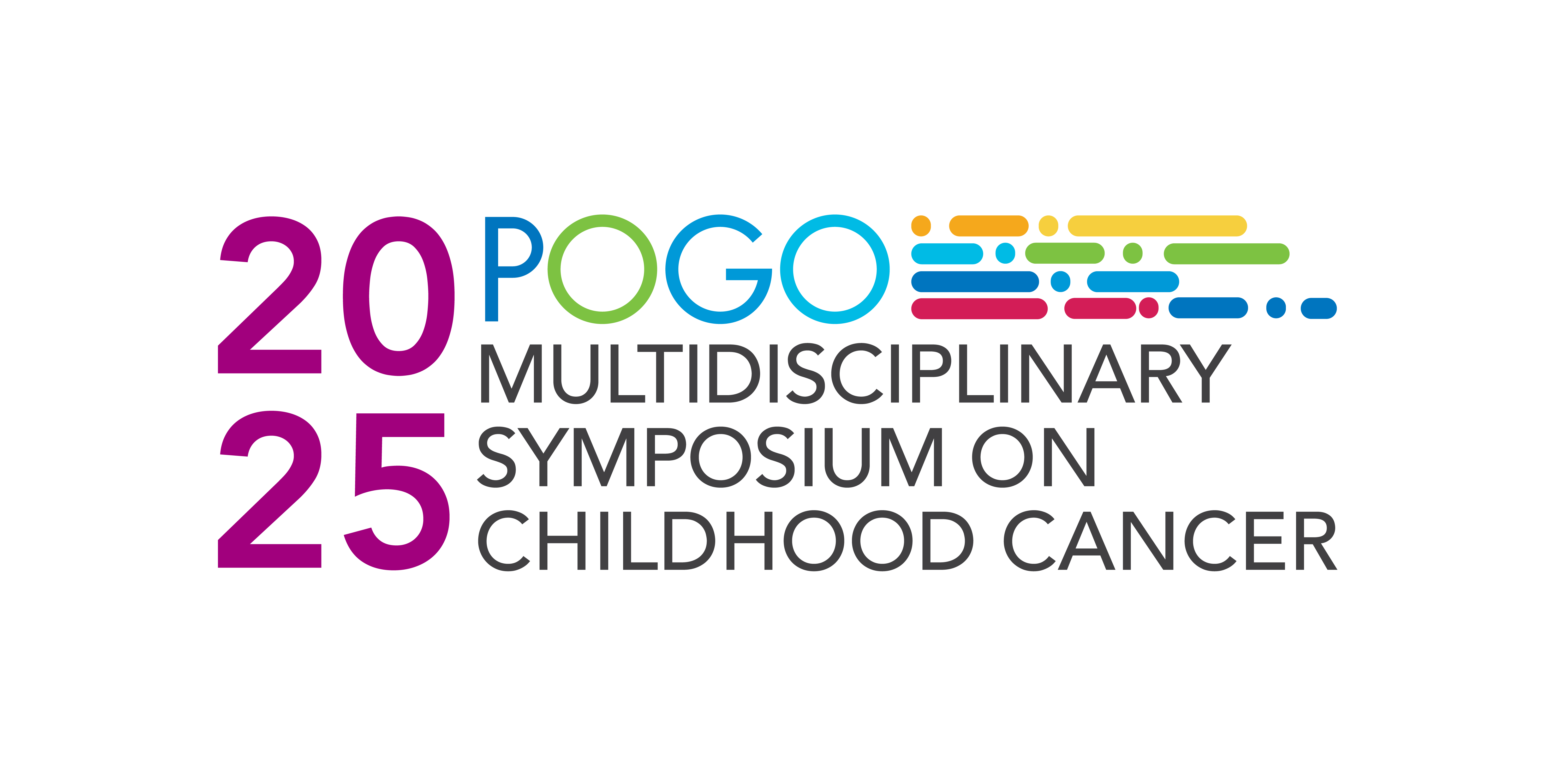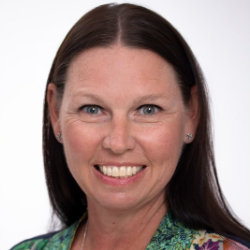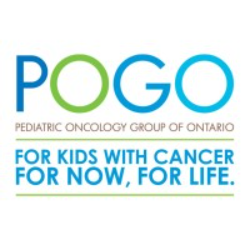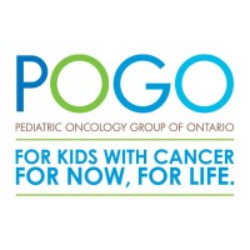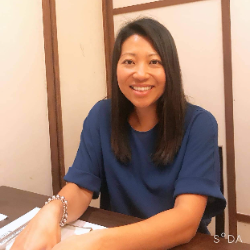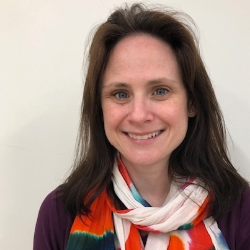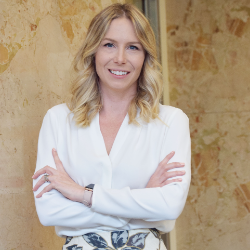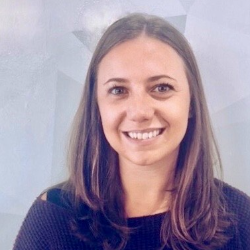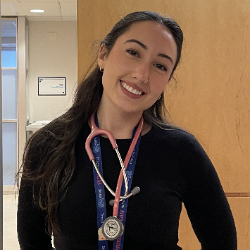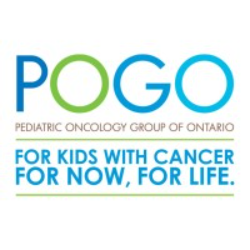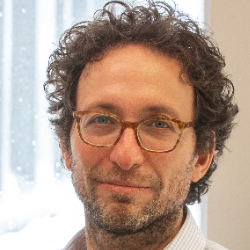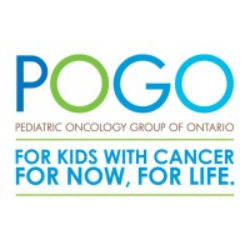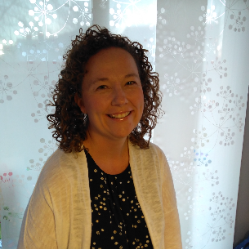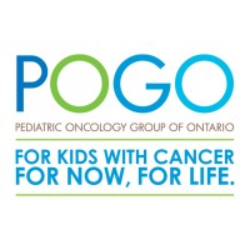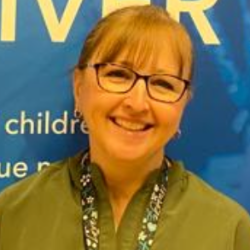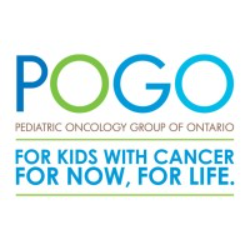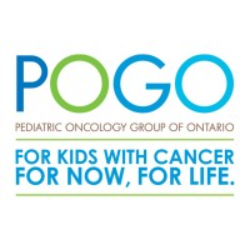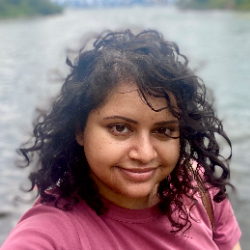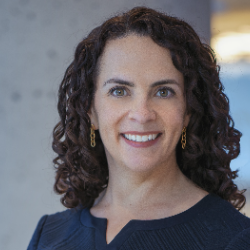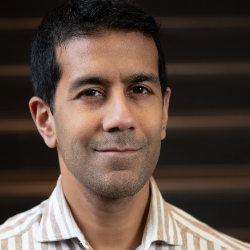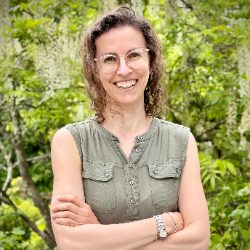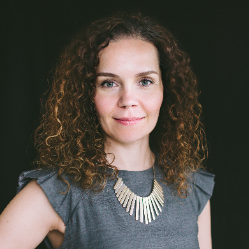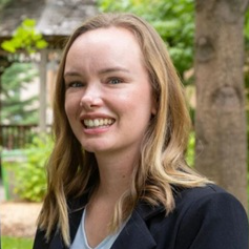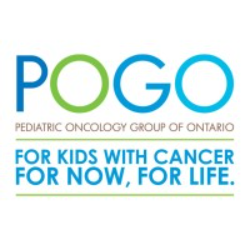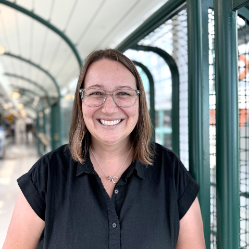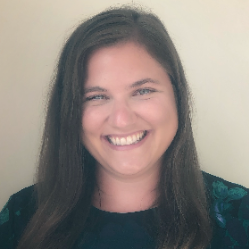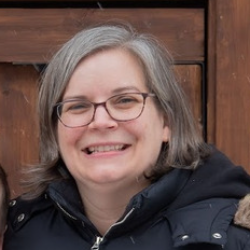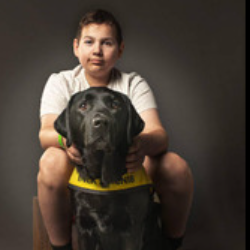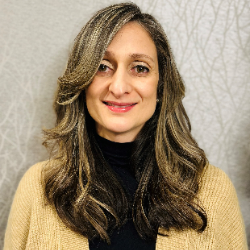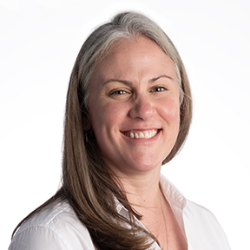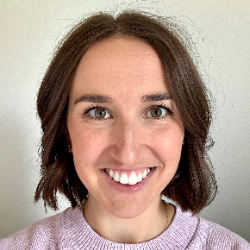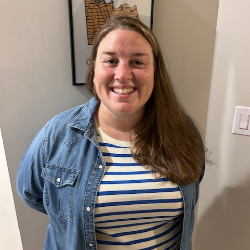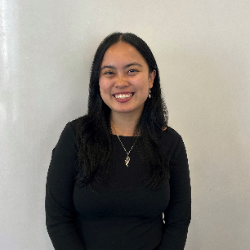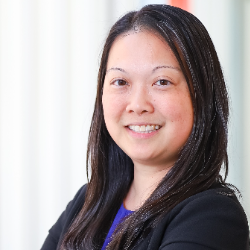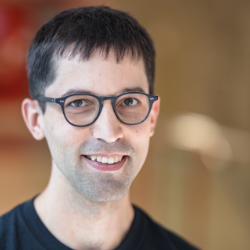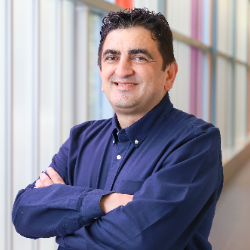Schedule
-
Different Roles, One Mission: Inspiring Care in Pediatric Oncology Nursing
Huron Grand BallroomThursday, November 06 8:30 AM - 10:00 AM
Speaker(s)
This session will explore the diverse roles within pediatric oncology nursing — from bedside care to advanced practice, clinical trials, and case management — and how each contributes to exceptional, patient-centred outcomes. Together, we’ll celebrate the dedication, expertise, and impact of pediatric oncology nurses in supporting children and families throughout the cancer journey.
Learning Objectives
- By the end of this panel, participants will be able to identify at least three distinct nursing roles within pediatric oncology (e.g., bedside nurse, nurse practitioner, research nurse, leadership) and describe one unique contribution of each role to patient and family care.
- Participants will be able to analyze at least two factors that influenced panelists’ career decisions in pediatric oncology nursing (e.g., personal motivation, professional growth, patient impact) and relate these factors to their own professional journey during the post-session reflection activity.
- By the conclusion of the session, participants will articulate one personal takeaway or career inspiration gained from the discussion and commit to one action step that supports their ongoing growth or role development in pediatric oncology nursing.
-
Talking to Teens: How you Communicate Matters
Huron Grand BallroomThursday, November 06 10:00 AM - 10:30 AM
Speaker(s)
Adolescents and young adults (AYAs) navigating adult oncology care face unique challenges that require thoughtful, respectful, and developmentally appropriate communication. This session explores how the way we communicate with AYAs can significantly influence their engagement, emotional well-being, and trust in the healthcare team. Through real-world examples and evidence-informed strategies, participants will learn to identify key communication considerations, analyze the impact of their interactions, and apply practical approaches that foster inclusive and supportive relationships with AYA patients. Whether you're new to AYA care or looking to refine your practice, this session will offer valuable insights to enhance your communication and connection with this important population.
Learning Objectives
- By the end of this session, participants will be able to identify at least three language considerations that are important when communicating with AYAs in pediatric oncology care.
- Participants will be able to analyze the impact of language choice on AYA patients’ engagement, emotional well-being, and trust in the healthcare team.
- By the conclusion of the session, participants will be able to apply at least one communication strategy that promotes respectful, developmentally appropriate, and inclusive interactions with AYAs in their nursing practice.
-
From Measurement to Management: Mobile App Solutions for Children’s Cancer Pain
Huron Grand BallroomThursday, November 06 10:50 AM - 11:20 AM
Speaker(s)
This session will showcase how digital health interventions might enable better assessment and management of children’s cancer pain. Drawing on the Pain Squad, Pain Squad+, and PainCaRe apps—each co-designed with children, adolescents, and families—this session will explore how mobile technologies enable real-time pain measurement, empower adolescents to self-manage pain, and support parents in caring for younger children with pain.
Learning Objectives
- By the end of this session participants will be able to describe the purpose and key features of digital pain management tools, including Pain Squad+ in supporting pediatric oncology patients and families.
- Participants will be able to explain how mobile apps can improve real-time pain assessment, self-management, and communication with healthcare providers.
- Participants will be able to identify at least one strategy for integrating app-based pain management tools into nursing practice to enhance patient and family support.
-
Putting Evidence into Motion: Practical Application of the POGO Fatigue Guideline
Huron Grand BallroomThursday, November 06 11:20 AM - 11:50 AM
Speaker(s)
Join an engaging and interactive presentation led by an Occupational Therapist, designed specifically for nurses and medical staff working with pediatric oncology patients. This session focuses on applying the Pediatric Oncology Group of Ontario’s (POGO) Clinical Practice Guideline on Fatigue to everyday care.
This session highlights the unique challenges faced by pediatric patients undergoing cancer treatment and will provide an overview into the complexities of fatigue in patients, and will explore practical, evidence-based approaches to support fatigue management using the guideline as a framework for improving patient outcomes and participation in daily activities. Through a real example and creative hands-on learning, this session will equip healthcare providers with a tangible strategy to identify and address fatigue more effectively — turning guideline recommendations into meaningful clinical action.
Learning Objectives
1. By the end of this session, participants will be able to identify one key recommendations from the POGO Clinical Practice Guideline on Fatigue that guide the assessment and management of fatigue in pediatric oncology patients.
2. By the end of this session, participants will be able to apply at least one practical, evidence-based strategies from the guideline to support fatigue in children undergoing cancer treatment.
-
CAR T and BMT - Why, When, and How
Huron Grand BallroomThursday, November 06 11:50 AM - 12:35 PM
Speaker(s)
This session will explore the evolving role of CAR T-cell therapy versus blood and marrow transplant (BMT) in paediatric oncology. We’ll discuss clinical scenarios where CAR T offers advantages in efficacy, safety, and patient quality of life, and outline decision-making factors that guide treatment selection.
Learning Objectives
- By the end of this session, participants will be able to explain the key differences between CAR T-cell therapy and hematopoietic stem cell transplant (BMT) and identify at least two clinical indications for each.
- Participants will be able to describe the nursing role in monitoring and managing at least two common complications associated with CAR T therapy (e.g., cytokine release syndrome, neurotoxicity) and BMT (e.g., graft-versus-host disease, infection risk).
- By the conclusion of the session, participants will be able to summarize at least two current challenges and opportunities in delivering CAR T and BMT, with a focus on the implications for pediatric oncology nursing practice.
Resources
So Special: A look at CAR T-Cell Therapy at SickKids
-
Infections in the Immunocompromised Patient
Huron Grand BallroomThursday, November 06 1:35 PM - 2:20 PM
Speaker(s)
Using real-world case vignettes, this session will highlight key aspects of diagnosing and managing infections in children undergoing cancer treatment. Attendees will explore practical approaches to bacterial, viral, fungal, and parasitic infections, with a focus on evidence-based strategies and clinical decision-making.
Learning Objectives
- Review the diagnosis and management of central venous catheter infections.
- Review the management of gram-negative bacterial infections with resistance to typical empiric antibiotics.
-
Between a Pump and a Painful Place: Nursing Considerations in the Administration of Dinutuximab and Blinatumomab Infusions
Huron Grand BallroomThursday, November 06 2:20 PM - 3:05 PM
Speaker(s)
This nursing presentation explores the clinical use, administration, and nursing considerations of blinatumomab and dinutuximab- two monoclonal antibody therapies used in the treatment of pediatric cancers. It will highlight their mechanisms of action, common side effects, essential monitoring strategies and common troubleshooting recommendations.
Learning Objectives
- By the end of this session, participants will be able to describe at least two key administration considerations for dinutuximab and blinatumomab in pediatric oncology patients.
- Participants will be able to identify at least three common side effects or adverse reactions associated with these infusions.
- By the conclusion of the session, participants will be able to demonstrate an understanding of supportive care strategies that optimize patient safety and comfort during the administration of Dinutuximab and Blinatumomab.
-
Quick Hits - The ABC's of POGO Satellite Clinics
Huron Grand BallroomThursday, November 06 3:05 PM - 3:25 PM
Speaker(s)
Join Lindsay Lauer and Deb Crann for a fast-paced, informative session that breaks down the essentials of POGO Satellite Clinics. Designed to give attendees a clear understanding of what these clinics offer and how they operate, this session will explore the foundational elements, Access, Benefits, and Coordination, that make POGO Satellite Clinics a vital part of pediatric oncology care. This session will provide valuable insights into how these clinics support patients and families across Ontario.
Learning Objectives
- Explain what POGO satellites can offer and how they function.
- Describe the services offered by POGO Satellites and how they support patients and families across Ontario.
-
Quick Hits - QI Nursing Wellness Cart
Huron Grand BallroomThursday, November 06 3:45 PM - 4:05 PM
Speaker(s)
This quick hit will introduce a quality improvement initiative designed to shift staff wellness from a one-size-fits-all model to a personalized journey tailored to each nurse’s unique interests and lifestyle. Grounded in the principles of Precision Health the project demonstrated statistically significant improvements in workplace support and engagement among nurses in the Haem/Onc/BMT/CT division at SickKids.
Learning Objectives
- By the end of this session, participants will be able to describe the purpose and key components of the Nursing Precision Wellness Tool Cart and its role in supporting pediatric oncology nursing practice.
- Participants will be able to identify at least two potential benefits of implementing the Tool Cart for enhancing staff well-being and patient/family-centered care.
- By the conclusion of the session, participants will be able to evaluate at least one way the Tool Cart pilot project could be adapted or scaled to their own workplace setting.
-
Lumbar Punctures with Minimal or no Sedation
Huron Grand BallroomThursday, November 06 4:05 PM - 4:25 PM
Speaker(s)
Discover an innovative approach to performing lumbar punctures with minimal sedation, led by Virginia Cyr and Nathalie Gervais. This session explores the use of hypnosis and complementary techniques to reduce or eliminate the need for general sedation during procedures. Attendees will gain insight into patient-centered strategies that enhance comfort, minimize risk, and improve procedural outcomes. Ideal for clinicians, nurses, and healthcare professionals seeking to expand their toolkit for pain and anxiety management in medical settings.
Learning Objectives
- By the end of this session, participants will be able to describe the rationale and goals behind using minimal or no sedation for lumbar punctures in pediatric oncology patients.
- Participants will be able to identify at least two strategies or interventions used to reduce sedation while maintaining patient comfort and safety.
- By the conclusion of the session, participants will be able to evaluate potential benefits and challenges of implementing similar program in their own institution.
-
The Heart of Healing: Challenges and Triumphs of Patient-Reported Outcomes
Huron Grand BallroomThursday, November 06 4:25 PM - 5:15 PM
Speaker(s)
This presentation explores the opportunities and obstacles in embedding patient-reported outcomes into pediatric cancer research and clinical care. Drawing on real-world experiences, we will highlight how children’s and families’ voices can guide meaningful improvements in treatment, quality of life, and care delivery.
The session will emphasize both the aspirations and the actionable steps needed to place the patient voice at the center of healing.
By the end of this session, participants will be able to:
- Explain the value of patient-reported outcomes in capturing the lived experiences of children, teens, and families affected by cancer.
- Identify common barriers and facilitators to implementing PROs in both research and clinical care settings.
- Evaluate strategies for integrating PRO data to inform clinical decision-making, improve care delivery, and shape future pediatric oncology research.
- Discuss actionable next steps to strengthen the role of PROs in advancing patient- and family-centered cancer care.
-
Welcome Reception
Huron Grand BallroomThursday, November 06 5:30 PM - 7:30 PM
Join us Thursday evening to kick off the POGO Multidisciplinary Symposium! Open to all attendees, whether you're attending the Pre-Symposium Nursing Day or the full Symposium, this relaxed drop-in event is a great chance to connect and network across disciplines. Enjoy lite food, a drink ticket, and great company as we celebrate the start of the symposium.
-
Vinesha’s Cancer Journey: The Lived Experience with an Intersectional Identity
Huron Grand BallroomFriday, November 07 8:20 AM - 8:35 AM
Speaker(s)
At just 15 years old, Vinesha Ramasamy faced a diagnosis that would change her life: a rare and aggressive form of high-grade osteosarcoma throughout an entire leg. Years earlier, she and her family had overcome what they thought was the biggest battle of their lives—fleeing Sri Lanka’s genocide against their oppressed Tamil Eelam indigenous people group.
Vinesha’s journey through cancer treatment, recurrence, survivorship and chronic illness has been anything but straightforward, continually marked by having to endure and survive a healthcare system that dismissed her intersectional identity and worked against her. Although her journey has brought about much trauma and limitation, Vinesha is reclaiming her voice to advocate for the many other patients and families like hers who fall between the gaps.
This session offers a deeply personal look at Vinesha’s resilience, the challenges she overcame, and the vital role that envisioning (im)possible futures has played in her survival. Through her story, we’ll explore the human side of cancer care and the profound impact that centring diverse perspectives in our lives, in our work, and in our healthcare ecosystem can have on a young life.
Join us to hear a glimpse of Vinesha’s moving journey and reflect on the wisdom and hope in diverse lived experience. Let that be our guide to mutual flourishing.
-
CEO’s Welcome Remarks
Huron Grand BallroomFriday, November 07 8:35 AM - 8:45 AM
Speaker(s)
-
Contemporary ALL therapy: Where did it come from? Where will it go?
Huron Grand BallroomFriday, November 07 8:45 AM - 9:30 AM
Speaker(s)
Sixty years ago, a diagnosis of acute lymphoblastic leukemia (ALL) was a considered an incurable disease. Thanks to cytotoxic chemotherapy, cure rates have soared to 85%—a remarkable achievement, but one that has plateaued. Now, groundbreaking advances in immunotherapy are pushing the boundaries even further. This session explores how these innovations are not only improving survival rates but also transforming the treatment landscape to minimize both short- and long-term toxicities. Join us to discover how the next generation of ALL therapy is being defined today.
Learning Objectives
- Describe the historical development of contemporary ALL therapy and its current limitations.
- Identify genetic and response-based factors that influence prognosis and therapeutic decisions in ALL.
- Explain current applications and future potential of immunotherapy in the treatment of ALL.
-
Navigating the Dilemmas: Challenging ALL Cases
Huron Grand BallroomFriday, November 07 9:30 AM - 10:30 AM
Speaker(s)Moderator(s)
Acute lymphoblastic leukemia (ALL) presents a wide spectrum of clinical challenges, especially in complex or atypical cases. This dynamic session will have leading ALL experts from across North America delving into the nuances of diagnosing and managing difficult ALL scenarios. Through an interactive review of real-world cases, participants will explore diverse presentations, diagnostic dilemmas, and evolving treatment strategies. Whether you're refining your clinical approach or seeking insights into emerging therapies, this session offers a valuable opportunity to enhance your decision-making in the face of ALL’s toughest dilemmas.
Learning Objectives
- Revise the diagnosis of difficult cases of acute lmyphoblastic leukemia, review challenges in management of difficult cases of ALL.
-
Session A: Meet me in the middle: Caring for AYAs with Cancer
Petun I & IVFriday, November 07 10:45 AM - 11:45 AM
Speaker(s)
This presentation will include breakout groups where participants can collaborate to explore the unique medical and psychosocial needs of Adolescent and Young Adult (AYA) patients. Together, they will examine practical strategies to support AYAs throughout treatment and into survivorship. By the end of the session, participants will have a strong foundation of knowledge to begin developing an AYA oncology program within their own centers.
By the end of this workshop, participants will be able to:
- List the unique medical and psychosocial needs of AYAs.
- Explore strategies to improve communication, support, and continuity of care.
- Describe foundational steps for developing an AYA oncology program.
Resources
-
Session B: The QI Toolkit: Selecting and Developing Projects that Matter
AlgonquinFriday, November 07 10:45 AM - 11:45 AM
Speaker(s)
This introductory workshop equips pediatric oncology health care team members with a foundational understanding of quality improvement (QI). Participants will explore the role of QI in enhancing care and safety within pediatric oncology and gain hands-on experience applying practical tools to analyze and address real-world challenges
Learning Objectives
- Explain how to identify a QI project, learn and the steps to start a project in QI.
-
Session C: Through the Eyes of a Family: Supporting and Empowering Families in Pediatric Cancer Care
Petun II & IIIFriday, November 07 10:45 AM - 11:45 AM
Speaker(s)
What is it like to be a family navigating pediatric cancer, where life-changing decisions are often made without your input? In this heartfelt session, childhood cancer survivor Oliver Acosta-Pickering and his mother, Dawn Pickering, share their powerful journey and advocate for a more inclusive, family-centered approach to care. Through their lived experience, they emphasize the importance of asking both children and parents how they feel, what they need, and recognizing their ability to contribute meaningfully to care decisions. Their story offers valuable insights into how listening, empathy, and empowerment can transform the treatment experience for young patients and their families.
This session will inspire healthcare professionals and educators to strengthen psychosocial support, foster trust and dignity, and elevate the voices of young patients and their families, ultimately transforming the treatment experience for children and families alike.
Learning Objectives
- Recognize the importance of engaging pediatric patients in treatment discussions by understanding how listening to their perspectives can improve trust, empowerment, and the overall care experience.
- Identify strategies to integrate children’s voices and psychosocial supports into cancer care in order to promote better emotional well-being and treatment outcomes.
-
Session D: Mission Possible: Navigating Challenges in Pediatric Oncology End of Life Care
Silver CreekFriday, November 07 10:45 AM - 11:45 AM
Speaker(s)
Caring for children with cancer at the end of life presents profound emotional and clinical challenges for multidisciplinary teams. This interactive session uses a compelling case study and elements of serious games to explore the complexities of collaborative decision-making and compassionate care. Participants will gain deeper insight into team dynamics and walk away with practical strategies to support patients, families, and each other during the most critical moments of care.
At the end of the presentation, participants will be able to:
- List strategies for navigating difficult conversations at the end of life in pediatric oncology settings.
- Employ techniques to support patients experiencing dyspnea.
- Demonstrate preparedness for managing a terminal bleed.
Resources
Approaching the End-of-Life: Pediatric Palliative Care Information for Healthcare Provider
Dyspnea
12-BCPC-Clinical-Best-Practices-colour-Dyspnea.pdf
Be-Prepared-Dyspnea-Conversation-Guide.pdfTerminal Bleed
5-BCPC-Clinical-Best-Practices-colour-Bleeding.pdf
Be-Prepared-Bleeding-Conversation-Guide.pdfDifficult Questions
Serious_Illness_Conversation_Guide.pdf
SeriousIllnessConversationGuideCard.pdf
-
Immunization in Pediatric Oncology: What’s New In Ontario
Huron Grand BallroomFriday, November 07 11:45 AM - 12:15 PM
Speaker(s)
Children undergoing and following cancer treatment face unique challenges in maintaining immunity against vaccine-preventable diseases. This session will highlight recent developments in pediatric immunization protocols during and after cancer therapy.
Learning Objectives
- To review the measles outbreak and new post-exposure prophylaxis recommendations.
- To summarize other recent vaccine developments relevant for children with cancer
-
Research Quick Hits #1
Huron Grand BallroomFriday, November 07 1:30 PM - 1:45 PM
Speaker(s)
Learn about up-to-date research in pediatric oncology
Learning Objectives
- Analyze up to date research in pediatric oncology.
-
Bridging Promise and Practice: Advancing Blinatumomab Care for Children with Leukemia
Huron Grand BallroomFriday, November 07 1:45 PM - 2:30 PM
Speaker(s)
This presentation explores the urgent need to strengthen care delivery for children receiving blinatumomab, drawing on caregiver experiences and clinical insights. We will highlight both the promise of improved outcomes, and the real-world challenges families face in managing complex at-home infusions. Key next steps for research, education, and system-level support will be outlined to ensure equitable, high-quality care across pediatric oncology settings.
By the end of this session, participants will be able to:
- Describe the unique challenges and facilitators of home- and outpatient-based blinatumomab delivery for children with leukemia, based on caregiver and clinical perspectives.
- Recognize the urgent system-level and educational gaps that impact the quality, safety, and equity of blinatumomab care delivery in pediatric oncology.
- Identify practical strategies and next steps to strengthen caregiver preparation, interdisciplinary support, and institutional infrastructure for blinatumomab administration.
- Integrate lessons learned from caregiver experiences into clinical practice, research design, and policy development to optimize outcomes for children and families.
-
CNS Embryonal Tumours in Very Young Children
Huron Grand BallroomFriday, November 07 2:30 PM - 3:15 PM
Speaker(s)
This session offers a comprehensive overview of the current landscape of central nervous system (CNS) embryonal brain tumors (EBTs) in young children, highlighting both historical and ongoing therapeutic challenges. Attendees will gain insight into the evolution of treatment approaches and the complexities that continue to shape clinical decision-making today. The session will also introduce “DECRYPT Babybrain”, a Canadian-led clinical trial designed to address key gaps in care and improve outcomes for this vulnerable population. Join us for a forward-looking discussion on innovation, collaboration, and the future of pediatric neuro-oncology.
Learning Objectives
- To discuss the current epidemiologic and molecular landscape of young child central nervous system embryonal brain tumours (CNS EBTs).
- To describe the current therapies and challenges for very young children with CNS EBTs.
- To review the objectives and hopeful impact of the Canadian clinical trial for young child CNS EBT: DECRYPT Babybrain.
-
Research Quick Hits #2
Huron Grand BallroomFriday, November 07 3:30 PM - 3:45 PM
Speaker(s)
Learn about up-to-date research in pediatric oncology
Learning Objectives
- Analyze up to date research in pediatric oncology.
-
Collaborating for Care: A Town Hall Round Table on Pediatric Oncology
Huron Grand BallroomFriday, November 07 3:45 PM - 4:45 PM
Join us for a dynamic and collaborative round table session where professionals from across the pediatric oncology spectrum come together to candidly explore the challenges they face in their roles and share diverse, practical strategies for navigating them. Through facilitated discussion and peer exchange, participants will gain insight into the realities of others in their profession, uncover common themes, and explore innovative approaches to problem-solving. Whether you're navigating resource constraints, or complex care coordination, this session offers a space to learn, reflect, and connect.
Learning Objectives
- Learn about challenges faced by others in your profession and different management strategies.
-
POGO Award Presentation and Networking Reception
Huron Grand BallroomFriday, November 07 6:30 PM - 9:30 PM
Open to all Symposium attendees, join us Friday evening as we honour outstanding contributions in childhood cancer care and recognize this year’s recipients of the POGO Awards. This lively reception features culinary stations, drink ticket, entertainment, and a warm, celebratory atmosphere, perfect for unwinding, mingling across disciplines, and building new professional connections.
-
Supporting Children and Youth with Procedures Using Trauma Informed Principles
Huron Grand BallroomSaturday, November 08 8:20 AM - 9:10 AM
Speaker(s)
Hospitalization and cancer treatment can be deeply distressing experiences for children and youth. This collaborative session explores how trauma-informed principles can be applied in pediatric care to recognize, prevent, and respond to potentially traumatic medical events. Attendees will gain actionable strategies and interventions designed to support emotional safety and resilience in young patients—empowering healthcare professionals and educators to make a meaningful difference during some of life’s most challenging moments.
Learning Objectives
- Define and assess for trauma symptoms in pediatric oncology population.
- Explain the principles of trauma informed care.
- Relate the principles of trauma informed care to concrete interventions during procedural supports.
-
Wilms Tumor: The ERAs Tour
Huron Grand BallroomSaturday, November 08 9:10 AM - 10:10 AM
Speaker(s)
Inspired by the format of Taylor Swift’s iconic ERAs Tour, this dynamic and creative session takes attendees on a journey through the evolution of Wilms Tumor care—from its initial discovery to groundbreaking treatments and the development of clinical trials that have dramatically improved patient outcomes. Each "ERA" highlights key milestones in research and care, brought to life with embedded audio clips that enhance engagement and reinforce learning. This session promises to be both informative and entertaining, offering a fresh perspective on the history and future of Wilms Tumor treatment.
At the end of the presentation, participants will be able to:
- Apply knowledge of Wilms Tumor epidemiology and clinical presentation to guide surveillance and diagnostic evaluation for children at risk due to genetic syndromes or presenting with relevant signs and symptoms.
- Describe the evolution of Wilms Tumor treatment, from initial discoveries to current standard-of-care therapies and explain how risk stratification has shaped clinical trial development.
- Evaluate prognostic data and its integration into the upcoming Children’s Oncology Group protocol for risk-stratified treatment of Stage I–IV Favorable Histology Wilms Tumor.
-
Session A: Meet me in the middle: Caring for AYAs with Cancer
Petun I & IVSaturday, November 08 10:30 AM - 11:30 AM
Speaker(s)
This presentation will include breakout groups where participants can collaborate to explore the unique medical and psychosocial needs of Adolescent and Young Adult (AYA) patients. Together, they will examine practical strategies to support AYAs throughout treatment and into survivorship. By the end of the session, participants will have a strong foundation of knowledge to begin developing an AYA oncology program within their own centers.
By the end of this workshop, participants will be able to:
- List the unique medical and psychosocial needs of AYAs.
- Explore strategies to improve communication, support, and continuity of care.
- Describe foundational steps for developing an AYA oncology program.
Resources
-
Session B: The QI Toolkit: Selecting and Developing Projects that Matter
Petun II & IIISaturday, November 08 10:30 AM - 11:30 AM
Speaker(s)
This introductory workshop equips pediatric oncology health care team members with a foundational understanding of quality improvement (QI). Participants will explore the role of QI in enhancing care and safety within pediatric oncology and gain hands-on experience applying practical tools to analyze and address real-world challenges.
Learning Objectives
- Explain how to identify a QI project, learn and the steps to start a project in QI.
-
Session C: Navigating the Early Years: Building a Successful Career in Pediatric Oncology
AlgonquinSaturday, November 08 10:30 AM - 11:30 AM
Speaker(s)
Starting a career in pediatric oncology comes with unique challenges and opportunities. This session offers practical insights and strategies for early-career professionals, including fellows and young investigators, to thrive in this demanding yet rewarding field. Learn from experienced voices about overcoming early hurdles, finding mentorship, and shaping a fulfilling career path in pediatric oncology.
Learning Objectives
- Learn about challenges faced in early career as a pediatric oncologist, learn strategies to succeed in a career in pediatric oncology.
-
Session D: Mission Possible: Navigating Challenges in Pediatric Oncology End of Life Care
Silver CreekSaturday, November 08 10:30 AM - 11:30 AM
Speaker(s)
Caring for children with cancer at the end of life presents profound emotional and clinical challenges for multidisciplinary teams. This interactive session uses a compelling case study and elements of serious games to explore the complexities of collaborative decision-making and compassionate care. Participants will gain deeper insight into team dynamics and walk away with practical strategies to support patients, families, and each other during the most critical moments of care.
At the end of the presentation, participants will be able to:
- List strategies for navigating difficult conversations at the end of life in pediatric oncology settings.
- Employ techniques to support patients experiencing dyspnea.
- Demonstrate preparedness for managing a terminal bleed.
Resources
Approaching the End-of-Life: Pediatric Palliative Care Information for Healthcare Provider
Dyspnea
12-BCPC-Clinical-Best-Practices-colour-Dyspnea.pdf
Be-Prepared-Dyspnea-Conversation-Guide.pdfTerminal Bleed
5-BCPC-Clinical-Best-Practices-colour-Bleeding.pdf
Be-Prepared-Bleeding-Conversation-Guide.pdfDifficult Questions
Serious_Illness_Conversation_Guide.pdf
SeriousIllnessConversationGuideCard.pdf
-
Supporting Parents to Support Children: Digital Psychotherapy for Distress in Pediatric Oncology
Huron Grand BallroomSaturday, November 08 11:40 AM - 12:10 PM
Speaker(s)
This session will highlight how digital psychotherapy can help address the emotional impact of childhood cancer on parents. Using the Emotion and Symptom-Focused Engagement (EASE) program as an example, we’ll examine patterns of traumatic stress in parents, describe the virtual adaptation of EASE, and share parent perspectives on its feasibility, acceptability, and impact. Participants will consider how mobile and online interventions can extend psychosocial care and strengthen family support in pediatric oncology.
Learning Objectives
- Describe the psychological impact of acute leukemia diagnosis and treatment on family caregivers.
- Identify key predictors and prevalence of traumatic stress in caregivers of children with acute lymphoblastic leukemia (ALL).
- Explain the theoretical foundations of psychotherapeutic interventions used in the EASE program.
-
Pharmacogenetics in my Paediatric Oncology Practice: Current and Future Directions
Huron Grand BallroomSaturday, November 08 12:10 PM - 12:55 PM
Speaker(s)
This talk will highlight what is currently known about genetic predictors of drug response and toxicity in pediatric cancer, and how clinicians could use genetic testing to optimize care for their patients. We will review predictors of both chemotherapy toxicities (cisplatin, anthracyclines, vincristine, asparaginase and steroids) and also the role of genetics in supportive care.
Learning Objectives
- To review the current state of knowledge of pharmacogenetics.
- To describe the clinical implementation of a pharmacogenetic program at a pediatric cancer center.
- To highlight future directions for research in pharmacogenetics.
Date
November 6-8, 2025
Location
Blue Mountain
156 Jozo Weider Blvd,
The Blue Mountains, ON
Rates
| Early Bird (end Sept 30) | |
|---|---|
| Symposium | $350 |
| Pre-Symposium Nursing Day | $125 |
| Bundle: Pre-Symposium Nursing Day & Symposium | $450 |
| Regular Rate | |
| Symposium | $450 |
| Pre-Symposium Nursing Day | $150 |
| Bundle: Pre-Symposium Nursing Day & Symposium | $500 |
| Fellow and Student Rate | |
| Symposium | $175 |
| Pre-Symposium Nursing Day | $50 |
| Bundle: Pre-Symposium Nursing Day & Symposium | $200 |
